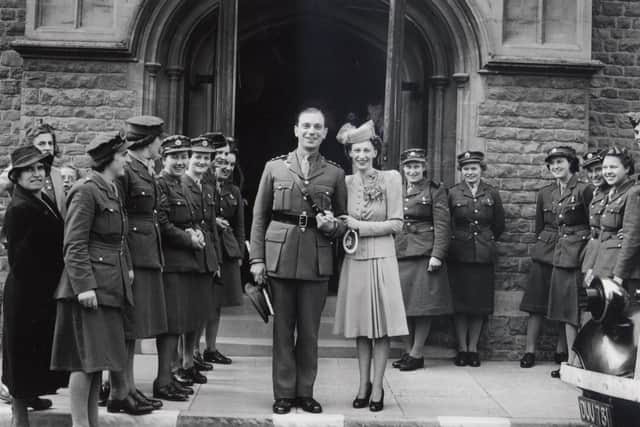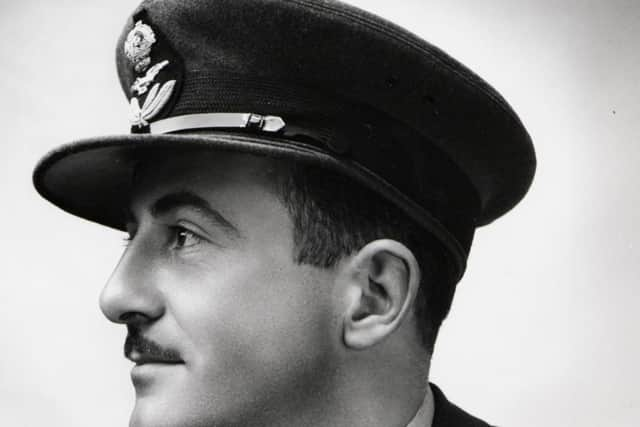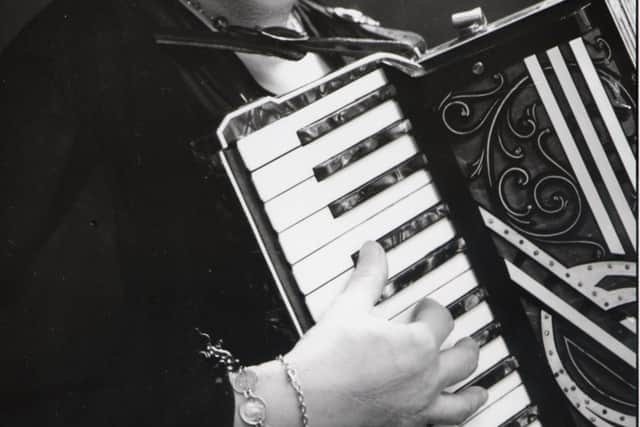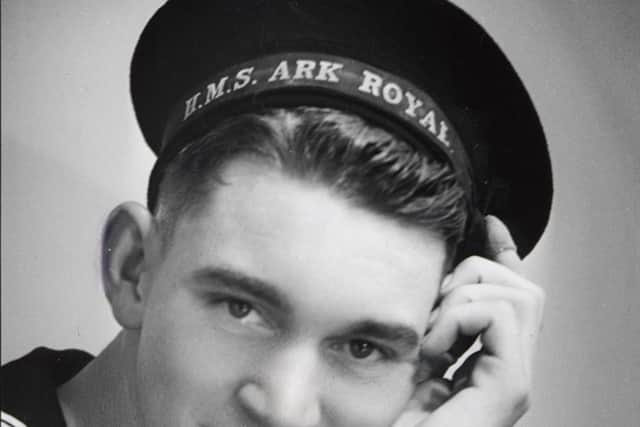Horsham on the Home Front, celebrating Henfield photographer Marjorie Baker
and live on Freeview channel 276
Marjorie was best known for her picture of a wartime baby with an expression like Winston Churchill, which caught the attention of the nation.
She took photographs of people in and around her village, and 30 of these will feature in a forthcoming exhibition, Horsham on the Home Front, once the museum is able to re-open.
Advertisement
Hide AdAdvertisement
Hide AdTo mark the 75th anniversary of Victory in Europe, Horsham District Council is making some these photographs available via social media, along with the comments Marjorie wrote about the people in them, to provide an evocative reminder of the personal experiences of war.


Marjorie lived in Henfield for most of her life and villagers knew she had an ability to draw out a deep sense of humanity in her photographs.
Due to her skill, she was chosen to take memento photographs of soldiers about to leave on service.
Rachel Weller, administration assistant at Horsham Museum, said: “Marjorie’s remarkable sense of vision meant that she worked subconsciously to tell a story, that of the village community she had grown up within.
Advertisement
Hide AdAdvertisement
Hide Ad“She knew what made Henfield tick, what made it proud, and could get under the skin of village life. It was this documentary ability that makes her collection so important today.”


Marjorie was born in 1912 in Henfield, where her father had a butcher’s shop. She was educated at Steyne School, Worthing, having been sent there in 1921 ‘to be made strong on sea air’.
On leaving school, Marjorie was apprenticed to Margaret Ellsmoor, a well-known photographer from Baker Street in London.
At the end of 1938, she bought a converted coach house in Henfield and gradually turned it into a studio, reception room, workroom and darkroom. Then, in 1940, she married Stephen Tidey, of Tidey’s Mill in Partridge Green.
Advertisement
Hide AdAdvertisement
Hide AdWorking in wartime was difficult, though she did at one time have four assistants, such was the demand for her work, photographing British, Canadian and occasionally American servicemen and women in the village.


Photographic film was rationed to one exposure per serviceman and three sheets of paper. Physical conditions were often hard and, on one occasion, when the water was turned off, Marjorie’s printer took prints home by bike in the blackout to Littleworth, five miles away, and washed them for two hours, before returning them the next morning.
Dr Patrick Reade, in his obituary for Marjorie in The Independent, wrote: “She recalled how when she was under the black cape behind the box camera, the couple would imagine they could not be seen and would canoodle, while she was in fact taking their photograph – giving a much better image.
“Civilians were not allowed to travel in military transport at that time, but Baker enjoyed dodging the military police, lying flat on the back of the lorries to get to Wiston House near Steyning to photograph the US troops stationed there.”
Advertisement
Hide AdAdvertisement
Hide AdHe went on to explain Marjorie would often travel to London during the war to buy film at auction, including x-ray and large format film, which she would cut down into quarters to extend her stock.


Marjorie stopped taking photographs in 1996 and started preparing her archive for posterity. She died on November 9, 2004, and her collection of negatives was left to Henfield for future generations to see at many of the village events that she photographed throughout her life, and a selection of 200 photographs was donated to Horsham Museum with her permission, to use them for the public to enjoy.
A message from the Editor, Gary Shipton:
In order for us to continue to provide high quality and trusted local news, I am asking you to please purchase a copy of our newspapers.
With the coronavirus lockdown having a major impact on many of our local valued advertisers - and consequently the advertising that we receive - we are more reliant than ever on you helping us to provide you with news and information by buying a copy of our newspapers.
Advertisement
Hide AdAdvertisement
Hide AdOur journalists are highly trained and our content is independently regulated by IPSO to some of the most rigorous standards in the world. But being your eyes and ears comes at a price. So we need your support more than ever to buy our newspapers during this crisis.
Stay safe, and best wishes.